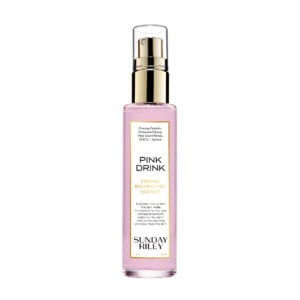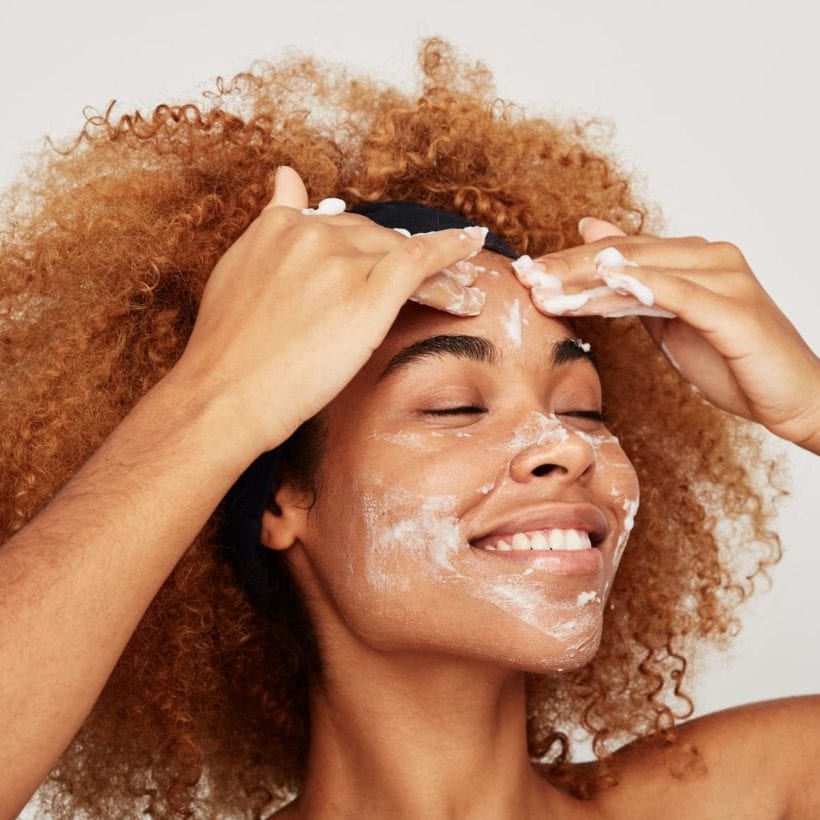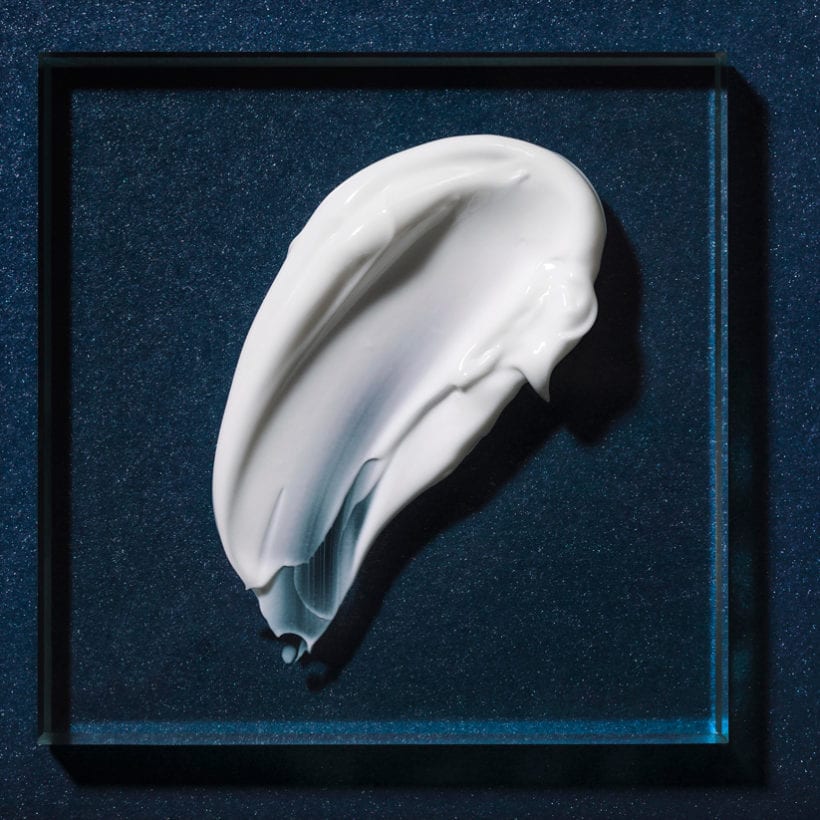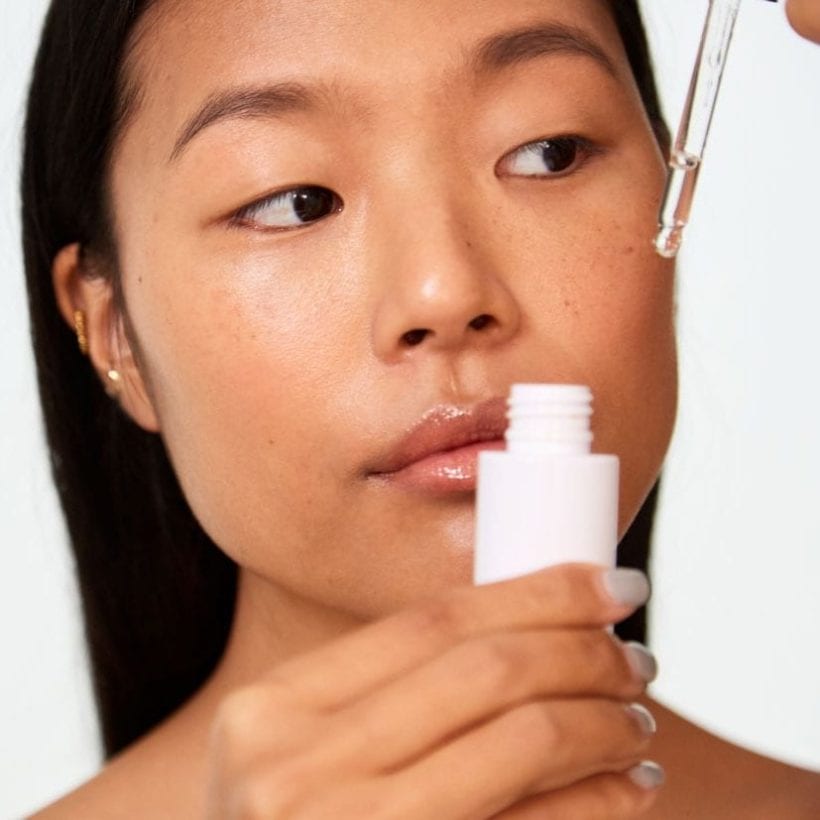There are a lot of buzzy beauty ingredients out there that have had their time in the spotlight so it’s hard to decipher what’s simply trendy versus a legitimate game-changer to your routine. That’s why we’re here to help you navigate the noise — and ultimately, save yourself a lot of trial and error. If you’re looking for healthier-looking skin, a great place to start is by adding peptides to your routine. Plus, peptides are beneficial for other aspects of self-care like skin inflammation and hair growth. Of course, we won’t just leave you hanging there: Read on below to get fully convinced.
What are peptides?
“Peptides consist of strings of amino acids, which are the building blocks of protein,” says Julie Russak, M.D., FAAD., a board-certified dermatologist and founder of Russak Dermatology Clinic. Peptides are found naturally in the cells of our body, they can be consumed (eggs, meat and milk are great sources) or they can be created in labs to mime the effects of real peptides.
The ones that are applied topically are broken down into signal peptides, enzyme inhibitor peptides, neurotransmitter inhibitor peptides and carrier peptides.
- Signal peptides: As its name suggests, these are “messenger” peptides that send your body certain signals. “It signals messages to different parts of your skin to stimulate fibroblasts to promote collagen, elastin and other proteins,” says Russak. For instance, if you’re lacking collagen, it’ll “tell” your body to repair the broken peptides or to replace them. These are the most common types of peptides used in skincare products.Common signal peptides include: Biopeptide-CL, Peptamide-6, Acetyl tetrapeptide-9 (and most tetrapeptides) and Acetyl hexapeptide-3 (and most hexapeptides).
- Enzyme inhibitor peptides: These peptides inhibit the enzymes that your body uses to naturally break down collagen. Rice and soybean peptides are common examples of enzyme inhibitor peptides.
- Neurotransmitter inhibitor peptides: Like enzyme inhibitors, these interfere with neurotransmitters that are involved with muscle contractions. “People compare this to being similar to liquid Botox,” says Russak. “These peptides are capable of inhibiting neurosecretion, and therefore can attenuate muscle contraction that leads to wrinkle formation minimal muscle activity.” In other words, it relaxes your facial expressions and muscles. Common neurotransmitter inhibitor peptides include Acetylhexapeptide-3 and Pentapeptide-18 (and other pentapeptides).
- Carrier peptides: “Carrier peptides are responsible for transporting and stabilizing microelements, such as manganese, and carrying them to the skin to promote wound healing and collagen production,” says Russak. Copper peptides are a popular type of carrier peptide that you’ll see in many skincare products to improve wound healing.

Why use them?
Since peptides are so gentle, they’re great for people with even the most sensitive skin.
“Peptides are important for producing collagen in our skin,” says Russak. Collagen is the protein in your skin that keeps it looking healthy and young. You’ll mostly find peptide ingredients in skincare products to signal your skin to amp up the amount of collagen. “Biosynthetic peptides that are used in cosmetics can stimulate collagen and elastin synthesis and improve skin healing and regeneration,” says Russak. They can also help with wound healing (including sunburns), hyperpigmentation, inflammation and moisture loss.
“If certain patients are considering in-office procedures like Botox or fillers, sometimes I’d recommend peptide products as a supplementary part of their routine since it’ll decrease the amount of Botox they’ll need. And they’ll help stimulate the way your skin regenerates,” says Russak.
In addition, “they’re shown to enhance the activity of the hair follicles,” says Dr. Joshua Zeichner, an NYC dermatologist. Copper peptides are more commonly found in hair care products to boost blood stimulation that helps lead to thicker hair.
What’s the best type of product to incorporate peptides?
The right product will be one that can most efficiently deliver peptides. “I’d avoid a cleanser with peptides because it’ll simply wash off and it won’t give the product enough time to sink into your skin,” says Russak. “Peptides must penetrate into the skin to do their job. For this reason, I believe that peptides are most effective in the form of serums or moisturizers. If essences or facial mists are formulated with high levels of peptides and are stable, they may be effective as well,” says Zeichner.

Are peptides better than other skin-firming ingredients?
It’s important to note that unlike FDA-approved ingredients like retinoids, peptides aren’t influencing the structure of your skin so they’re not subject to the same cosmetics laws. This doesn’t mean they aren’t safe to use, it’s just that there’s still a lot left to be known about them and there aren’t many official studies comparing them to other ingredients. Peptides certainly won’t be as powerful as an in-office procedure like Botox, yet dermatologists love them anecdotally, especially for those with sensitive skin.
How long will it take to see results from peptides?
About a month. “You can use peptides every day as they’re known to not have any irritating factors,” says Russak.
How else should you tweak or supplement your routine?
“You can use products with different anti-aging ingredients that support various structures. You can use peptides to boost collagen, retinol for the regeneration of cells and vitamin C for antioxidants,” says Russak.
You should think about how you layer your skincare products when incorporating a peptide-infused product. “You don’t want to create a barrier between your skin and your peptide product by using something like a heavy moisturizer in between. It won’t penetrate as effectively,” says Russak. You also want to avoid pairing peptide products with other skincare that features ingredients like large molecules like hyaluronic acid since that’ll make it harder for the peptides to sink in, she says.







